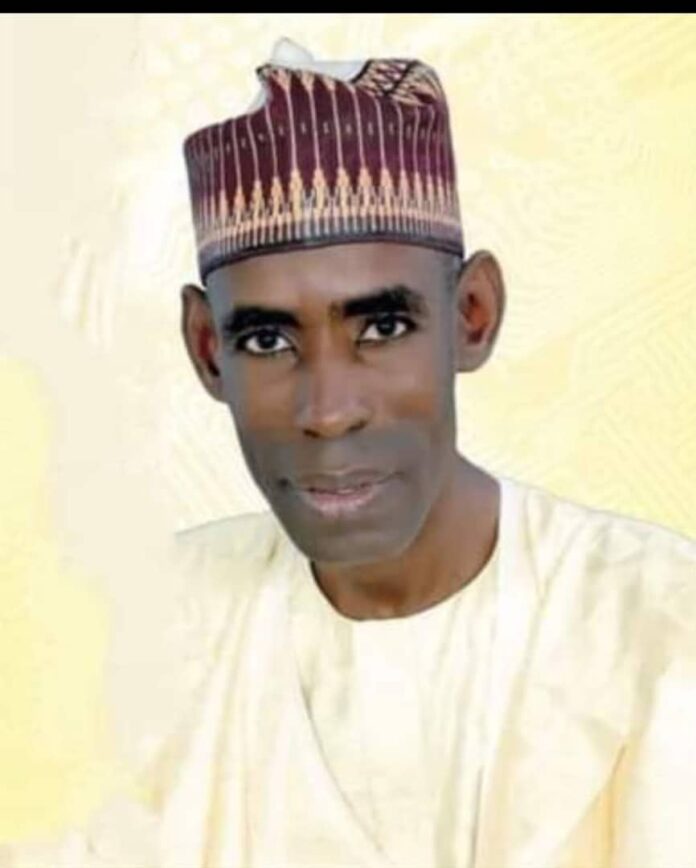The sociology of the ‘Northern Question’ in Nigeria: A fundamental reasoning on some salient issues (II), by Engr. Bello Gwarzo Abdullahi, FNSE
Sociology, as a discipline nestled within the social sciences, delves deeply into the intricate exploration of human social behavior, relationships, and institutions. It meticulously scrutinizes the evolution, structure, and functionality of human society, encompassing a broad spectrum of social interactions, relationships, and institutions.
In his thought-provoking article titled “The Sociology of the ‘Northern Question’ in Nigeria: A Fundamental Reasoning on Some Salient Issues (II),”His Excellency Ambassador Usman Sarki sheds light on significant and fundamental issues concerning Northern Nigeria and its intricate relationship with other constituent parts of Nigeria. This intervention comes at a crucial juncture, given the prevailing socio-political and economic circumstances that shape the national landscape.
When we delve into the key concepts of Sociology, we encounter essential notions that underpin societal dynamics. Socialization, for instance, elucidates the process through which individuals acquire and internalize societal norms and values, shaping their behaviors and interactions.
Social stratification, on the other hand, highlights the segmentation of society into hierarchical layers based on factors such as wealth, power, or status, illustrating the disparities that exist within communities. Cultural norms, a cornerstone of societal cohesion, represent collective expectations and values that govern behavior within a given society, influencing social norms and practices.
The applications of Sociology are far-reaching and impactful, playing a pivotal role in our understanding of complex social issues. Sociology enables us to comprehend and respond to pressing social dilemmas such as poverty, inequality, and discrimination, providing insights that can inform effective policy decisions and social interventions. By enhancing our understanding of social relationships, Sociology contributes to the improvement of interpersonal dynamics and societal cohesion, fostering a more harmonious and inclusive social fabric.
As we navigate through the realm of the ‘Northern Question’ in Nigeria, it becomes imperative to meticulously examine the underlying factors that contribute to this complex socio-political and economic issue.
The term ‘Northern Question’ encapsulates a myriad of challenges unique to the northern region of Nigeria, necessitating a deep dive into the historical context and cultural dynamics that have shaped the region’s current state. Ambassador Usman Sarki’s astute analysis brings to light the divisive impact of categorizing Nigerians based on regional identities, fostering conflict and alienation that hinder national unity.
The challenges of exclusionary politics underscore the importance of inclusive governance structures that amplify the voices of all regions within the country, fostering a sense of belonging and participation among diverse communities.
The significance of the “Northern Question”looms large in Nigeria’s governance and policy landscape, influencing national undertakings and shaping the trajectory of the nation. Addressing this critical issue requires objectivity, impartiality, and an open-minded approach to fully grasp its implications for governance, politics, economy, and society at large.
Northern Nigeria, as a region, faces intense scrutiny and diverse perspectives that set it apart from other regions, reflecting a blend of curiosity and malice towards the North. The region’s economic, social, and political conditions are subjects of fervent debate and speculation, underscoring the need for nuanced understanding and thoughtful consideration.
One of the central issues that demand attention is the developmental disparity between the northern and southern regions of Nigeria, which has deep historical roots and far-reaching ramifications for societal aspects such as education, healthcare, and infrastructure.
The ‘Northern Question’ also encompasses issues related to governance and political representation, with the northern region often perceiving itself as marginalized within the country’s political landscape.
By addressing these underlying causes and striving towards inclusive development policies, Nigeria can pave the way for a more equitable and prosperous future for all its citizens. Collective efforts must be mobilized to confront the myriad sociological challenges at hand, fostering a society where inclusivity, understanding, and unity prevail.
bgabdullahi@gmail.com
Follow the Neptune Prime channel on WhatsApp:
Do you have breaking news, interview request, opinion, suggestion, or want your event covered? Email us at neptuneprime2233@gmail.com





